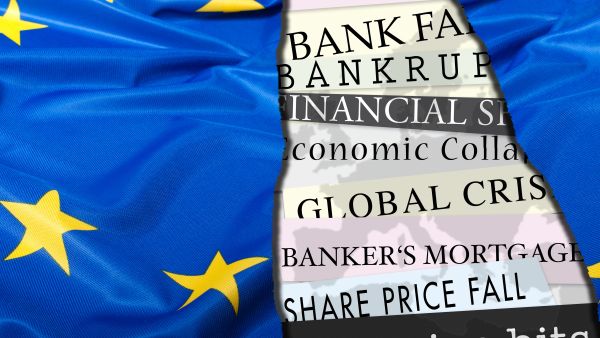Only Bulgaria is part of the same category from among the latest EU entrants, while all the other members of the trading bloc either belong to the third stage of the category or are well ahead in the lead category that are described as being “innovation-driven.”
According to the report, the top key efficiency enhancers for efficiency-driven economies are “higher education and training,” “goods market efficiency,” and “labor market efficiency.” The other enhancers have to do with de development of financial markets, technological readiness and the size of their markets.
The existential dilemma that Romania has come to face these days is that despite the nearly 23 years of democracy since it broke with communism, the country as a whole became less competitive than under communist rule in most ways. At least that’s what documented evidence shows. Startling as it may sound, that also appears to be the truth if we look around and in the recent past.
THE CEAUSESCU LEGACY
Let us start understanding what is going on by having a look at “higher education and training,” which is supposed to be the efficiency-driven economy’s top enhancer.
When Ceausescu’s communist regime was toppled in December of 1989, Romania had hundreds of thousands of skilled engineers. It also had tens of thousands of well-trained physicians, teachers, computer programmers and economists. And it had armies of skilled construction workers, mechanics, electricians, welders etc. But they were all trained and educated to serve the scope of a centralized economy. They were, however, more creative than their peers in other former communist countries, because they were often put at work due to reasons fueled by Ceausescu’s ambitions to become economically independent from both the Soviet Union and the West, as well as by his huge appetite to “reconstruct” the country by destroying both the good and the bad things around them. So all of these people had to often be more innovative then others in neighboring countries. Engineers figured out ways to move entire churches that Ceausescu had ordered to be demolished. Together with workers they had to find ways to complete works under the dictator’s tight deadlines. Education was a lot about discipline in Romanian schools and pupils were trained in a competitive environment, with the aim to obtain at least a high-school degree in urban areas. Universal literature books were cheap and Romanians were doing a lot of reading in the absence of rich TV programs or under heavy media censorship. Lots of students aimed to become physicians because of the deeply-rooted habit of paying the doctor under the table with goods, including food, coffee or cigarettes, at a time when food staples were extremely scarce. Others took the research path, because Ceausescu had realized he could not become economically independent without creating the country’s own patents or smartly copying western ones. Such development begged for more computer engineers and programmers, automation engineers and other jobs as such. Romania soon produced its own PCs, having copied a lot from the west, and it also had the manpower to run them.
But in communist years, Romania also had a problem in opposition with the type of labor force it partly possessed. Although education and training took place in a competitive manner to a certain degree, the economy itself was not one based on competition. Thus, skilled workforce was trapped in an economy that produced for the sake of production volumes rather than that of productivity, quality or market rules.
Too many of these skilled people found out soon after communism fell that their talents and services are no longer needed in their country that claimed to become market oriented. They soon came to realize out that their monthly wages were enough to buy only about 20 large bottles of western-made Coke in the early ‘90s, at a time of hyperinflation in Romania. The pace of building and producing gradually slowed because there were no more communist-type orders, and many construction workers and electricians went to countries like Israel, Germany, Spain, Italy or France to make money, often working illegally and constantly hiding from authorities. Only the less skilled and the younger stayed at home. That was also the case of the more educated – physicians, teachers, professors, computer scientists and many more – who soon found out that their work and talents were being paid extremely poorly at home when compared to what they could earn elsewhere in the West. And since lots of them spoke English or French, plus the fact that Romanian is Latin-based thus making it easy for Romanians to learn and understand Spanish or Italian, millions of the country’s citizens started a new life in the West. Among them, some of the most skilled left to never return again.
THE FLIPSIDE OF THE COIN
So, post-communist Romania developed another problem, an inverse situation: this time it was having enough lee way to use its skilled workforce because it had embraced a market economy, but it didn’t have enough money to pay them at their real value. Neither did it have the wisdom to put the best politics in place to start turning the country around from its first years of freedom. So it kept on losing its gems.
All of this was part of a normal social and professional dynamics, one could say. True; when they can, people go where they feel their skills are best prized and paid. Romania’s post-communist authorities failed to keep at home lots of its skilled people because authorities were too blind to see that patriotism without decent incomes simply is not enough. And whenever the economy grew or more money poured in from foreign investments or EU aid, authorities and politicians were more preoccupied about how to lay their hands on large portions of the extra funds available rather than creating the premises for the country’s most-needed people to get paid better in order to stay home.
The problem with competitiveness in Romania these days is also strongly linked to the need to start rebuilding the country in a different way. The country needs to again be able to create skilled engineers, physicians, computer scientists, construction workers and many more specialties in order to build or fix roads, build new power plants and upgrade the ailing ones, treat suffering people and encourage teachers to resume their hard work with students. Romania needs skilled people to create wealth, this time in a competitive environment, not like in communist times when just volumes mattered.
FACTS OF LIFE
The terrifying consequence of skills draining is that the quality of services in Romanian hospitals, schools and other businesses has decreased dramatically. Romanians who earn in the range of thousands of euros, considerably more than the average net monthly wage equivalent of about EUR 350, often resort to travel to clinics in Austria or Germany to get themselves checked, treated or to undergo surgery because they no longer trust services and get discouraged by the lack of basic medicines and normal medical supplies in hospitals at home. Plus the customary bribes, which the vast majority pay for health services in state hospitals, to which they are normally entitled by law from their state health insurances. All of this happens even as the health budget doubled from 10 years ago, because corruption practices in the health system result in spending public money on preferential acquisitions and contracts that don’t have an immediate effect on the quality of services.
Similarly, parents who can afford to pay don’t waste a second looking for high schools or universities in the country, but pay for their children to study directly in western Europe or the U.S. And no one should blame them after statistics showed that the 2011 summer-autumn high school graduation session was the country’s worse in 20 years, as the EU demanded a higher degree of monitoring of the testing act. Graduation rates of only 40 percent in the capital Bucharest and countless cases of fraud during tests, to which teachers turned a blind eye, depicted a grim landscape in Romania’s education system, which in the past produced extremely well-trained professionals.
All of these facts are hitting hard on Romania’s degree of competitiveness. But let’s go back to the fact that higher training and education is among the key enhancers for an efficiency-driven economy. Assuming each and every government coming to power from now on would double the education budget, it’s still not going to be enough, because if nothing else changes on other fronts as well, Romania will just continue to produce brains and skills that it shall later lose due to poor payment and a general feeling of lack of fulfillment at home by such individuals. Of course, some will stay. But without less corruption and more respect towards its own people, the country won’t manage to become much more competitive in the long term.
LACK OF TRUST
“The economic crisis is transforming the emigration from Romania into a life horizon,’’ the German foundation Friedrich Ebert said in a study released by its Bucharest office Oct. 4., 2011. “Not only those that have relatives abroad are willing to leave, but people from almost any generation, with very different ethnic and professional backgrounds. Thus, emigration is triggered not only by the low level of income, but also by the lack of trust in the institutional system and decision makers.”
The above is probably one of the best on-the-record quotes one could have found to depict the country’s current situation and the alarming deterioration of its chances to at least preserve, if not to enhance its level of competitiveness. It shows the bottom line is that Romania these days is losing even what’s left among its valuable people and proven talents and it shall need generations to restore such a deficit of skills. And let me say it again, all of this is happening at a time the country needs its best human resources in place.
In its chapter on Romania, the World Economic Forum’s latest Global Competitiveness Report cites 15 “most problematic factors” for doing business in the country. The top five ones are the following: tax rates, inefficient government bureaucracy, policy instability, access to financing and corruption. It’s easy to notice that all of them have to do almost 100 percent with governments that rule the country in a non-competitive way. Despite the fact that Romania enjoys a relatively low income tax of 16 percent, tax rates are seen as the main hurdle against competitiveness. Why would that possibly be? Most likely because besides the flat tax the cost of hiring is quite high and the implementation of fiscal practices is far from being clear. It’s quite clear that Romania cannot solve its competitiveness problems over night. But having in place governments showing consistent signals that they finally understood what needs to be done in order to boost the enhancers and cut on the deterrents of competitiveness would clearly make a difference from today’s situation. At least it would soften the widespread feeling more and more Romanians have: that they are being betrayed by a system that doesn’t give them the chance of being competitive in their own country.
And since higher training and education are the main enhancers to an efficiency-driven economy such as Romania, maybe this is what we should start with: placing more interest in the type of education that would make people more competitive by teaching them what competitiveness is about rather than encouraging cheap skills by cheaply paid teachers and trainers.

































